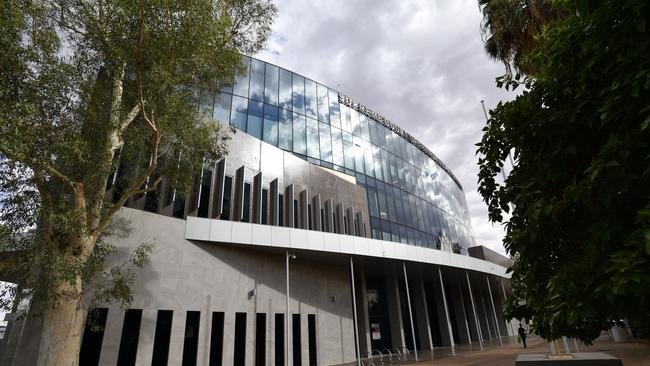Leaked email confirms Legal Aid NT cuts across Territory courts
People accused of serious crimes in the NT will lose all access to critical legal services from January next year, with Aboriginal defendants set to bear the brunt of the dramatic service cuts.

People accused of serious crimes in regional areas of the NT will lose access to critical legal services from January next year, a leaked internal email has confirmed, with Aboriginal defendants set to bear the brunt of the dramatic service cuts.
In an unprecedented announcement, Legal Aid NT has confirmed it will drastically strip back its services from the end of the month. By January, all criminal services in bush courts will cease completely.
The Law Council has condemned the “intolerable” cuts that constitute “an unacceptable erosion of the right to a fair trial which is a fundamental element of our criminal justice system.”
In an email sent to a group of private lawyers in the Territory, Legal Aid NT acting director Jaqui Palavra outlined the timeline for the service withdrawing its assistance.
From October 21, all new applications for help for criminal law matters “will be refused unless proceedings are brought under the Youth Justice Act”. “NT crime duty lawyer services will be limited to in-house capacity only, with no duty services being provided by contracted private practitioners,” she said.
Legal aid for all matters set down for trial after January 1 will be terminated, unless the defendant is aged under 18, she said.
“From January 1 all Bush Court services will cease completely,” she said.
“We appreciate the impact these measures will have on the representation of and access to justice for vulnerable people and on the practices of the private legal profession who undertake legally aided matters,” Ms Palavra said in the email.
“We acknowledge these changes will have a disproportionate impact on Aboriginal and Torres Strait Islander people owing to their overrepresentation in the criminal justice system.”
Ms Palavra blamed insufficient funding for the dramatic service cuts.
“Unfortunately, the funding we have been provided to date has not been sufficient to meet the increase in demand and will not be sufficient for us to meet in the 2024/2025 financial year,” she said. “Legal Aid NT does not have confidence that additional funds will be provided at all or within a time frame which will enable us to continue to offer our current services.”
The announcement comes following a tumultuous year for the Territory, which has seen large crime waves particularly among Indigenous communities in Alice Springs.
The country’s largest Aboriginal justice service, the North Australian Aboriginal Justice Agency, has also experienced dire staff shortages, and had to halt services across regional courts for more than three months.
During that period, Legal Aid NT redirected services to youth courts, existing clients, fresh custodies and clients facing serious indictable charges in order to help supplement the gaps left by NAAJA.

However The Australian understands that under the new cuts Legal Aid NT will be unable to help NAAJA at all.
Law Council president Greg McIntyre SC said the NT community should be “deeply concerned” about the development.
“Our democratic Australian society depends upon the rule of law and upholding the right to a fair trial,” he said. “The NT community should not be shortchanged in this way.”
He said as a result of the cuts, many vulnerable people accused of serious crimes will be forced to self-represent.
“Compromising legal assistance service delivery in this way puts in jeopardy the accused’s right to a fair trial, increases the risk of a miscarriage of justice and worsens inefficiency in an over-burdened justice system,” he said.
“Unrepresented accused persons in serious criminal matters will be forced to represent themselves. Practically, this will often require an accused person to prepare their own case, while they are in detention on remand, increasing the risk that legal errors will not be identified, coerced pleas will be entered and longer custodial sentences—in circumstances where they may have limited comprehension of the trial process.
“Conversely, an accused person who receives independent legal representation may be persuaded earlier in the process to accept a negotiated outcome avoiding the costs of a trial.”
In a media statement released on Friday morning, a Legal Aid NT spokesperson said the service would “continue to seek additional funding” to restore its full capabilities.
“Whilst Legal Aid NT will make every endeavour to scale back services in the coming months in a way that causes as little disruption as possible, it acknowledges that these measures will have an impact on the justice system, including vulnerable clients and the courts,” the spokesperson said.
“We appreciate the understanding and support of our community during this challenging time.”







